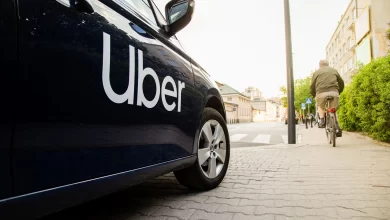What is omission bias? Why do some people refuse vaccinations?
ما هو انحياز الإغفال؟ لماذا يرفض بعض الناس اللقاحات؟
Foreign Policy
As of early December, about 8.5 billion doses of COVID-19 vaccine have been administered worldwide. That makes the COVID-19 vaccination effort easily the largest public health intervention in history—and yet, its success has been mixed. The world’s most vulnerable countries have been denied their fair share of vaccination doses, while in wealthier countries, the main problem is not access but hesitancy, often concentrated in specific regions of anti-vaccination sentiment. For example, the eastern German state of Saxony has full vaccination rates of only around 56 percent, and an infection rate more than twice as high as the country as a whole.
Much of the discussion around COVID-19 vaccine hesitancy has focused on how different the COVID-19 vaccine is from other vaccines—for example, no other vaccine has been developed as quickly. But to view COVID-19 vaccine hesitancy as a new phenomenon neglects the meteoric rise of broader anti-vaccination sentiment worldwide over the last few decades.
There may be no better illustration of this concept than the measles vaccine. As an extraordinarily contagious disease, measles requires a vaccination rate of around 95 percent to achieve herd immunity—the point at which the disease won’t circulate through the population freely. In 1978, after the year before the first dose of the measles vaccine was introduced in Romania, 540 out of every 100,000 people contracted measles. By the turn of the millennium, child vaccinations had hit 96 percent and incidence in Romania had reduced to 0.16 per 100,000 people—a tremendous accomplishment by any standard.
But then measles vaccination rates began to fall. By 2017, they were down to 86 percent of the population for the first dose, 75 percent for the second, and Romania was embroiled in a years-long epidemic, along with much of Europe. In 2018, there were 83,540 cases of measles across Europe, compared to 5,273 just two years before.
In cases like Romania’s, when a country has initially high rates of vaccination that then decline, vaccine access is not the issue; instead, vaccine hesitancy is the culprit. For example, Italy also suffered outbreaks of the measles in 2017-19 due to a similar lapse in vaccine uptake. The demographic patterns of the cases in such outbreaks emphasize the role of vaccine hesitancy: 78 percent of the cases in a 2013 measles outbreak in New York were children unvaccinated due to parental refusal or intentional delay.
Vaccine hesitancy might seem like a niche behavior—some research suggests only 8 percent of Americans reliably identify themselves as “anti-vaxxers”—but it’s a well-established issue in public health, and it’s here to stay. Nearly a year before COVID-19 first emerged, the World Health Organization identified vaccine hesitancy as one of the top ten threats to global health. Eradicating disease will not be possible until we understand the complex psychological and cultural reasons that underlie anti-vaccination attitudes.
Let’s start with the psychological. Vaccination is psychologically counterintuitive. Human behavior is strongly motivated by rewards—specifically, immediate and tangible rewards, which trigger powerful emotional reactions. When the instant pleasures of junk food face off against the subtle, long-term rewards of a nutritious diet, healthy eating rarely wins out. This calculus does vaccination no favors. A successful vaccination experience is characterized by not getting sick—a non-event that is difficult to even perceive, let alone appreciate as a reward.
In addition, vaccination’s reputation suffers from the psychological phenomenon known as omission bias: people see the harm caused by action (such as side effects of getting vaccinated) as more severe and meaningful than the harm caused by inaction (such as becoming ill after not getting vaccinated).
Perhaps worst of all, vaccines can become victims of their own success. When vaccination rates increase, disease rates drop. Generations who grew up without exposure to diseases such as measles have little reason to fear their consequences. When misinformation about the risks of vaccine meets ignorance about the risks of disease, vaccination rates drop.
Until the next outbreak, that is. In 2018, Romania’s measles vaccination rate rebounded to 81 percent for the full two doses, an example of the upticks that often occur when the consequences of being unvaccinated become visible.
But anti-vaccination attitudes aren’t only about what happens inside our heads; they are also in constant conversation with our social and cultural environment. Motivations to vaccinate are very culturally specific. Many anti-science beliefs can be best understood as the product of certain attitude roots, or psychological motivations that keep people from changing their minds even in the face of contradicting evidence. In fact, among individuals who are the most committed to anti-vaccination beliefs, correcting myths about vaccination only increases skepticism.
To overcome vaccine hesitancy, we must unearth these roots and determine what the act of vaccination means to people—something that does not always generalize across cultural contexts.
In the United States, for example, anti-vaccination beliefs are often a function of conspiratorial ideation or Republican political affiliation. Conspiracy theories appeal to believers for many reasons—for one, they can help people feel intelligent for seeing though society’s lies. The reasons why Republican political affiliation has become linked to anti-vaccination beliefs are more complex, but statements by influential figures such as former U.S. President Donald Trump, who encouraged getting the COVID-19 vaccine while in office but both before and after his presidency expressed doubt about vaccines, have contributed to making anti-vaccination attitudes a mainstream belief among American conservatives.
Our research team at Duke University’s Center for Advanced Hindsight investigates novel solutions to increase vaccine uptake. In the case of measles vaccination, we decided to focus on the self-protective angle of conspiracy theories. If believing they’re in on a secret helps conspiratorial thinkers affirm their self-worth as intelligent people, what happens if we meet that need in a different way?
In 2019, we recruited 1,087 pregnant mothers from the United States to tell us about a time they felt intelligent, a time they felt like good parents, a time they felt like bad parents, or to complete an unrelated task. We then had them read a persuasive passage arguing in favor of the measles vaccination. Last, we asked about their intentions to vaccinate their future child. Our major interest was in the intelligence prompt, because we wanted to see if we could offer our participants a chance to affirm their self-worth in a healthier way.
The answers we got in response to our intelligence prompt were mostly small moments, spelled out in a sentence or two. Women told us about adapting quickly to new jobs, succeeding at math classes or tests, solving problems for their loved ones, winning arguments with coworkers, innovating at work or impressing a supervisor.
But despite the brevity of the answers, those who’d written about feeling smart were significantly more likely to agree they’d vaccinate their child. Why? They found the pro-vaccination passage more persuasive than those who’d written about anything else. Once their psychological need to feel intelligent was met through another source, they could accept the science and consider vaccination as an option. Their vaccine hesitancy had nothing to do with ignorance—and everything to do with what anti-vaccination attitudes mean for someone in the United States of America.
More recently, our team has turned our attention to COVID-19 vaccination. This spring, we studied the effects of different pro-vaccination messages on COVID-19 vaccine intentions by surveying a racially representative sample of 1,748 people from the southeastern United States. We showed our participants one of six different messaging strategies, ranging from framing the vaccine as the route back to normal life to explaining the U.S. Food and Drug Administration’s testing process, then asked about their attitude toward the COVID-19 vaccine.
Only two of our approaches worked to increase vaccination intention. The first successful message focused on combatting omission bias by emphasizing the risks of not vaccinating as far greater than the risks of vaccination.
The second successful message was a little more unusual. We framed COVID-19 vaccination as a patriotic act—a way for people to help the United States rise to meet the challenge of COVID-19.
The idea for this intervention sprang directly from a consideration of what motivates anti-COVID-19 vaccination attitudes in U.S. culture. Trump’s historical anti-vaccine statements and remarks subsequent to his presidency contributed to creating an environment where to be pro-vaccine was to be anti-Republican—and in the United States, political party affiliation is a stronger identity than even race or religion. By tying vaccination to patriotism, another cherished value, this intervention allowed readers to sidestep the uncomfortable tension between Republican identity and vaccination behavior. In fact, our patriotism-themed message was especially successful among Republican participants, nearly erasing the gap between political parties.
But what worked in the United States will not necessarily work elsewhere. Omission bias may be universal, but other motivating factors behind anti-vaccination attitudes don’t look the same from country to country.
For example, in 2003, several primarily Muslim states in northern Nigeria boycotted the polio vaccine due to concerns that it could spread HIV and cause sterility. These concerns were a result of many complex factors, including fears of an anti-Islam U.S. crusade spurred on by the United States’ response to Sept. 11, and the memory of Pfizer’s deadly anti-meningitis drug trials in Nigeria in 1996. Kano, the last Nigerian state to uphold the boycott, lifted it after ten months, only when it received vaccines manufactured in Indonesia—a predominantly Muslim country. There could perhaps be no clearer example of a culturally sensitive solution.
A similar lens must be applied to COVID-19 vaccination. Experts in the social sciences across the globe must work together to identify the roots that underlie vaccine hesitancy and understand how these factors differ across communities at both national and local levels. We can then move beyond information and education to target hotspots of hesitancy, either by addressing the psychological needs that anti-vaccination serves or by framing vaccination as part and parcel of important cultural values. Whichever paths we choose, one thing is clear: We will not succeed at protecting ourselves and our loved ones against COVID-19 until we understand vaccine hesitancy as an emotional, social, and cultural problem, and apply tailored solutions accordingly.
الجزيرة
غالبا ما ترتبط المعتقدات الرافضة لتلقي اللقاح بالسياق الثقافي والاجتماعي، ولكن قد تكون هناك طرق ناجحة لإقناع هؤلاء الرافضين، وذلك وفق دراسة تم إجراؤها في الولايات المتحدة.
وتقول الكاتبة جينا كلارك في تقرير نشرته مجلة “فورين بوليسي” (foreign policy) الأميركية إن 8.5 مليارات جرعة من لقاح فيروس كورونا تم توزيعها في أنحاء العالم، إلى حدود بداية ديسمبر/كانون الأول الجاري، وهو ما يجعل الجهود المبذولة لمكافحة هذا الوباء أكبر عملية صحية تجري في التاريخ.
إلا أن نتائج هذه العملية تبدو متباينة، إذ إن الدول الأكثر فقرا في العالم حرمت من نصيبها من جرعات اللقاح، فيما تواجه الدول الغنية مشكلة مختلفة وهي تردد المواطنين بشأن تلقي التطعيم، خاصة في أماكن محددة تكثر فيها مشاعر ونظريات مشككة في هذا الأمر.
وتشير الكاتبة إلى مثال على ذلك، وهو ولاية ساكسونيا في شرق ألمانيا، حيث بلغت نسبة الحاصلين على التطعيم 56% فقط، وتجاوزت نسبة المصابين بالعدوى في الولاية ضعف النسبة العامة بالبلاد.
ويركز المشككون في جدوى أو سلامة اللقاحات، على مسألة التسريع بالأبحاث وقصر التجارب التي أجريت، إلا أن هذا النوع من المواقف ليس جديدا في العالم، وقد كانت المشاعر الرافضة للقاح موجودة منذ عقود.
ورغم أن التردد بشأن تلقي التطعيم قد يبدو من الوهلة الأولى سلوكا نادرا ومحصورا في فئات معينة، خاصة أن الأبحاث تؤكد أن 8% فقط من الأميركيين يقدمون أنفسهم على أنهم من مناهضي التطعيمات، ولكن في الواقع فإن هذه المسألة منتشرة على نطاق أوسع بمجال الصحة العامة، وسيبقى الحال كذلك لوقت طويل.
إذ إنه قبل حوالي عام من ظهور فيروس كورونا، كانت منظمة الصحة العالمية اعتبرت التردد بشأن اللقاحات واحدا من أخطر 10 ظواهر على الصحة العامة، وبالتالي لن يكون من الممكن اجتثاث الظاهرة دون أن نفهم العوامل النفسية والثقافية المعقدة التي تدفع الناس لتبني هذه المواقف.
ومن الناحية السيكولوجية تعتبر مشاعرنا تجاه التطعيمات مضادة للمنطق، إذ إن السلوك البشري دائما ما كان مدفوعا بالمكافئات، خاصة منها الملموسة والفورية، التي تمنح ردة فعل عاطفية قوية.
سمعة اللقاحات
إضافة إلى ذلك فإن سمعة اللقاحات تعاني بسبب ظاهرة نفسية تعرف بانحياز الإغفال، إذ إن الناس يرون الضرر الذي سببه أمر ما، مثل الآثار الجانبية للقاح، ويعتبرونه أكثر خطورة من الضرر الذي يسببه الامتناع عن التطعيم، وهو ضرر الإصابة بالمرض.
وربما يكون العامل الأسوأ هو أن اللقاحات قد تصبح ضحية نجاحها، حيث إن ارتفاع نسبة الحاصلين على التطعيم تؤدي إلى اختفاء المرض، ثم تأتي أجيال تنشأ دون التعرض إلى هذا المرض الذي اختفى بفضل التطعيم، على غرار مرض الحصبة مثلا، وبالتالي فإنهم لا يشعرون بأي خوف من تبعات الامتناع عن اللقاح.
وعندما تلتقي المعلومات المغلوطة حول مخاطر التطعيم، مع الجهل بأضرار المرض، فإن نسبة الذين يقبلون على اللقاح تكون منخفضة، إلى أن تندلع موجة أخرى من ذلك المرض.
وتشير التجارب إلى أن الأفراد الذين ينشطون ضمن حملات المناهضة للتطعيم، لا تؤدي محاولة إقناعهم بخطأ معتقداتهم إلا إلى مزيد تشبثهم بمواقف أكثر تطرفا.
نظريات المؤامرة
وتشير الكاتبة إلى أنه في الولايات المتحدة أيضا، غالبا ما ترتبط المشاعر الرافضة للتطعيم مع نظريات المؤامرة والأوساط السياسية المرتبطة بالحزب الجمهوري، وهي أفكار تجذب أعدادا لا بأس بها من الناس لعدة أسباب، من بينها أنها تجعلهم يشعرون بأنهم أذكياء وأنهم كشفوا أكاذيب المجتمع.
ومن الشخصيات المؤثرة المشاركة في هذا التيار هنالك الرئيس الأميركي السابق دونالد ترامب، الذي شجع الناس على الحصول على اللقاح أثناء تقلده لمنصبه، ولكن قبل فترة رئاسته وبعدها كان يعبر عن شكوكه بشأن هذا اللقاح، وساهم في الترويج لهذه النظريات في الأوساط المحافظة بالولايات المتحدة.
وتشير الكاتبة إلى أن فريقا من الباحثين في الولايات المتحدة كان قد نفذ سابقا تجارب حول مواقف الناس من اللقاح ضد مرض الحصبة، أجرى مؤخرا بحثا آخر حول لقاح فيروس كورونا.
تجربة عملية
وخلال الربيع الماضي تمت دراسة تأثير مختلف الرسائل المشجعة على التطعيم ضد فيروس كورونا، وأجري استبيان شمل عينة مكونة من 1748 شخصا من ولايات الجنوب الشرقي الأميركية، يمثلون فئات متنوعة.
وعرض الباحثون على هؤلاء المشاركين في كل مرة واحدة من بين 6 إستراتيجيات اتصال يتم استخدامها للإقناع بتلقي اللقاح، منها التركيز على أنه يمثل الطريقة الوحيدة للعودة إلى الحياة الطبيعية في الولايات المتحدة، أو التركيز على الإجراءات المعتمدة من إدارة الغذاء والدواء الأميركية والاختبارات قبل منح الموافقة، وبعد ذلك عرضت على هؤلاء المشاركين أسئلة حول موقفهم من اللقاح.
وقد بينت هذه التجربة أن اثنين من الأساليب نجحت في زيادة عدد من أبدو استعدادهم للذهاب لتلقي التطعيم، والطريقة الاتصالية الأولى الناجحة ركزت على التصدي لتحيز الإغفال، وذلك من خلال الإشارة إلى المخاطر المرتبطة بعدم تلقي اللقاح، والتي تفوق بكثير مخاطر اللقاح نفسه.
أما الطريقة الثانية التي نجحت فقد كانت خارجة عن المألوف، وتمثلت في جعل اللقاح يبدو كأنه عمل وطني بطولي، ومساهمة في دعم البلاد بمواجهة التحديات التي فرضها الوباء.
ولكن تنبه الكاتبة إلى أن هذه الأساليب التي نجحت في الولايات المتحدة قد لا تنجح بأماكن أخرى، بما أن مشكلة انحياز الإغفال قد تكون عالمية، ولكن العوامل تختلف من بلد إلى آخر.
وتدعو الكاتبة في الختام إلى اعتماد هذه المقاربات من أجل زيادة الوعي بأهمية تلقي التطعيم ضد فيروس كورونا، مع تنسيق جهود مختلف علماء الاجتماع في العالم من أجل التعرف على الجذور العميقة لهذا التردد والرفض، الذي تقابل به اللقاح فئاتٌ لا يستهان بها من الناس.




